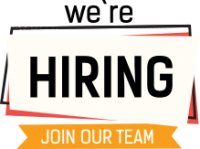
Important HVAC Repair Safety Measures to Take During the Pandemic
If you work in HVAC, it’s more important than ever to exercise precautionary measures to help you and your clients stay safe. The virus is usually spread from person-to-person when an infected person coughs or sneezes. It travels through air, so properly running heating, ventilation, and air conditioning systems may be important barriers to infection. And since there’s a lot we still don’t know, a better-safe-than-sorry policy is a good idea.
HVAC Repair Visits During COVID-19
HVAC emergencies will happen even during the pandemic. As an HVAC Technician, you won’t be able to avoid them. But you can avoid getting or spreading COVID-19 with some commonsense practices and extra vigilance when it comes to person hygiene and professional practices. Here’s what to do and when to do it:
When to Say No to an HVAC Appointment
If you have any cold or flu-like symptoms, or if you have been in contact with anyone with those symptoms, stay home from work and do not make any house calls. Find out if anyone in the home or business you will enter is ill. While you may not be able to avoid entering, you can use extra caution.
Wash Your Hands Frequently
The best way to prevent getting or spreading COVID-19 is to wash your hands. The CDC recommends disinfecting your hands after using the bathroom, before eating, whenever touching a shared object, blowing your nose, or when you cough or sneeze. Scrub your hands with soap and warm water for 20 seconds to remove germs. If those aren’t available, use a hand sanitizer that is at least 60% alcohol and rub your hands thoroughly.
Diagnose HVAC Issues Remotely
Before entering a client’s home, use Facetime or another video application to begin remote diagnostics. Understanding what you’ll face may help you reduce the time you’re in the home or business. It will also help you bring the right tools and equipment for the specific job.
Bring the Right Protection to the HVAC Appointment
If you need to go on site, be equipped with:
- Masks
- Gloves
- Disinfectant
- Sanitizers
Practice Social Distancing
Take the following precautions before entering a client’s home:
- Don’t shake hands.
- Maintain a distance of at least 6 feet between you and the client.
- Use clean show covers for each home you visit and throw them away after you leave the home.
- Wipe your tablet surface with an alcohol wipe before asking the client to sign for work done or email an invoice while on site.
- Wipe off the thermostat with an alcohol wipe.
- Do not hand out business cards.
Help Control Airborne Infections as an HVAC Technician
Due to the airborne nature of COVID-19, a properly functioning HVACR system is front and center for prevention and containment. As an HVAC technician, you can help protect the indoor air we breathe.
There are three ways to control airborne infection: ventilation, particulate filtration, and Ultraviolet disinfection.
1. Ventilation
Improved air control and proper ventilation are critical for healthy indoor environments. Experts recommend proper ventilation, humidity and temperature control; all components of a good HVAC system.
2. Particulate Filtration
Air cleaners and HEPA (high-efficiency particulate air) filters reduce exposure to COVID-19 by removing particles from the air. These filters are 99.97 percent effective at trapping particles down to 0.3 microns in size. While these filters can’t guarantee protection against infection, you can recommend their use as a preventative step.
3. Ultraviolet Disinfection
HVAC UV disinfection systems can complement conventional filters by capturing and killing microorganisms small enough to pass through filtration. These systems can provide 24/7 irradiation of HVAC systems and components. They help destroy bacteria, viruses, and mold that settle and multiply on coils, air filters, ducts, and drain pans. They can also prevent the growth of pathogens that can eventually become airborne and circulate by HVAC systems.
Do you already work in the HVAC industry? Or are you considering a new career? You could complete the HVACR Training Program at Porter and Chester Institute in as little as 12 months. Our campuses are in Connecticut and Massachusetts.We’ll teach you how to install, maintain, and troubleshoot HVACR units in residential, commercial and industrial settings—and how to be safe doing it! Fill out the form to learn more now.






